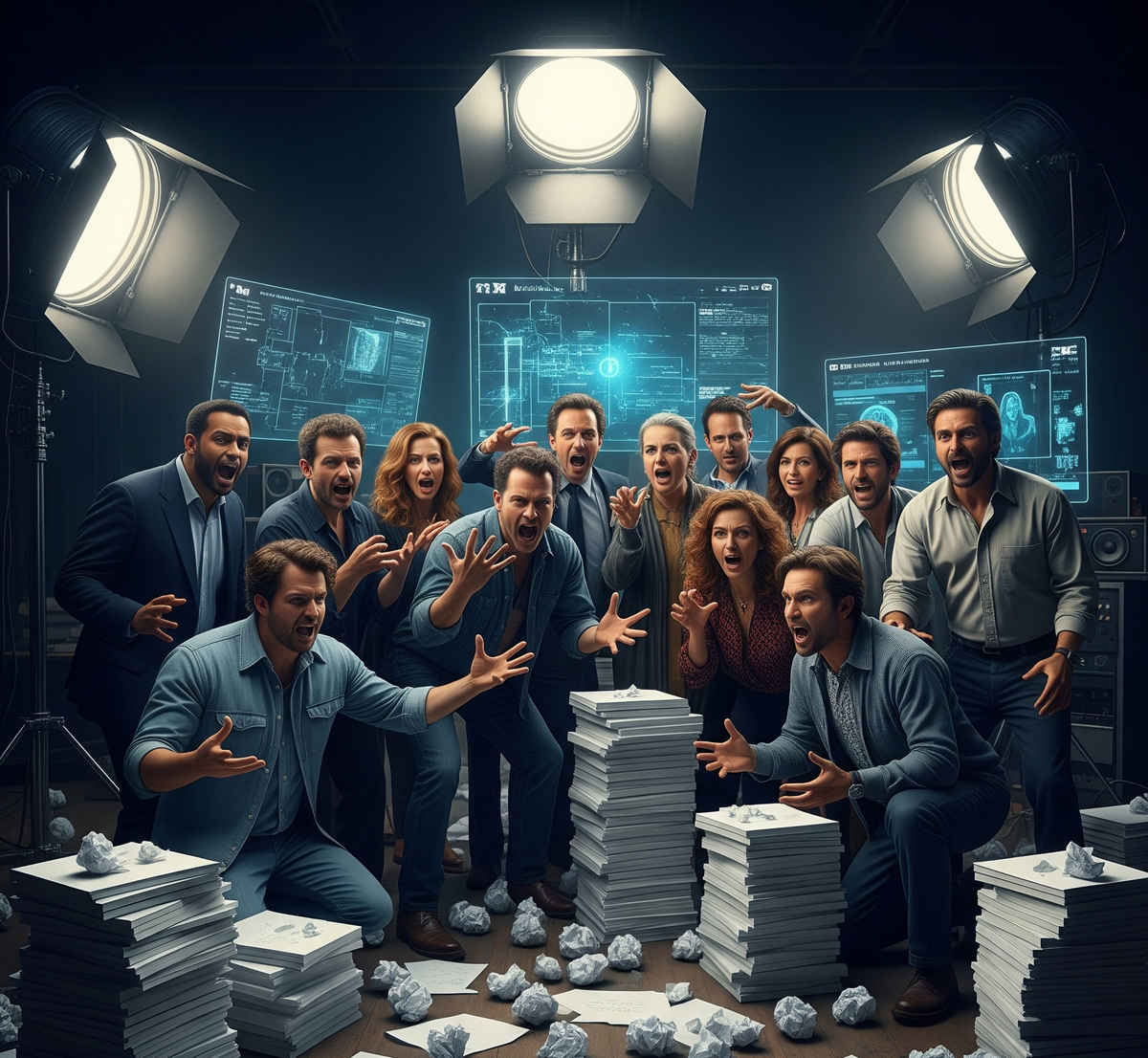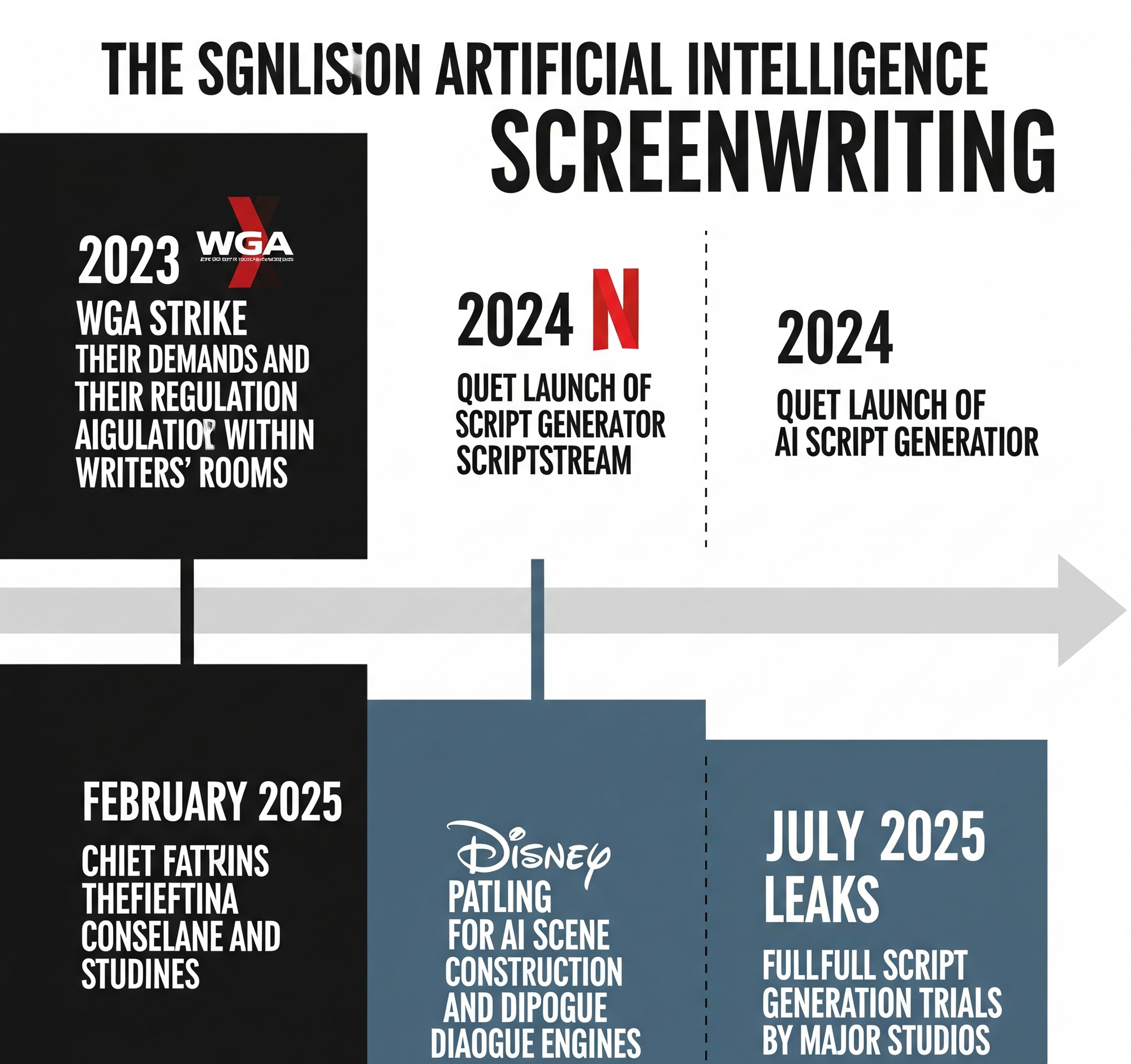AI-Only Scripts? Inside Hollywood’s Secret Trials That Have Writers Furious

[LOS ANGELES, CA] — JULY 7, 2025
It was supposed to be a quiet summer. Instead, Hollywood is once again in the throes of chaos. Just one year after the landmark 2023 Writers Guild of America (WGA) strike brought the industry to a standstill over AI authorship rights, leaked documents and internal memos have revealed that several major studios are actively commissioning and testing AI-generated screenplays — without informing the guild or credited writers.
From blockbuster franchises to streaming-exclusive thrillers, insiders say the studios are conducting "silent trials" of generative AI tools like ChatFilm Pro, SceneBot, and Scriptly.AI to draft first versions of pilots and movie scripts. And this time, writers aren’t just on strike; they’re preparing to sue.
The Leak That Shook the Studio System
According to a July 1 report by Insider Film Desk (archived via Archive.org), a whistleblower at Aurora Pictures shared internal documents detailing a month-long initiative called "Project Bootstrap" — a confidential effort to test fully AI-generated screenplays for upcoming sci-fi and romance titles.
"The idea was simple: compare audience reaction to human-written vs. AI-written pilot drafts in blind screenings. What shocked us was that AI was often chosen over WGA writers."
The revelation sparked immediate outrage on Threads and X (formerly Twitter):
@RealWGAWatch: "This isn't innovation. It's theft. You can't replace lived experience with pattern recognition."
@ScriptGirl5: "If I find out I’m competing against a bot for a Netflix pitch, I’m walking."
Archive Timeline: How AI & Screenwriting Collided
Using Archive.org, we traced key moments leading to this latest standoff:
- 2023: WGA strike demands AI regulation in writers' rooms
- 2024: Netflix quietly launches ScriptStream, an AI script generator
- Feb 2025: Disney files patents for AI scene construction and dialogue engines
- July 2025: Leaks confirm full script generation trials at major studios

Legal Minefield: Writers vs. Studios
Lawyers from the WGA Legal Task Force have already begun filing discovery requests, alleging that studios may be violating contractual authorship clauses and copyright law by attempting to register AI-written material under human pseudonyms.
On Justia, at least three early-stage lawsuits have been filed in California courts since July 2 by screenwriters who allege their past work was scraped as training data for these AI tools.
Attorney Max Elbaum (WGA counsel): "This isn’t just about contracts. This is about identity. A screenwriter is not a replaceable node in a system."
Hollywood Reacts: Fear, Fury, and Firing Shots
Directors and showrunners are already speaking out. Ava DuVernay posted on Threads:
"A robot didn’t grow up Black in Compton. A robot didn’t cry over a divorce. A robot didn’t survive abuse. And that’s why it can’t tell our stories."
Others like Ryan Murphy are reportedly lobbying streamers to commit to AI-free writing policies. Meanwhile, Warner Bros. Discovery released a lukewarm statement saying they "value all storytelling tools," further fueling speculation that they too are testing AI drafts.
A poll by Deadline Insider found that 74% of working TV writers believe they’ll be partially replaced by AI within 3 years if protections aren’t passed.
Google Trends: AI Script Controversy Spikes
Search interest for "AI screenwriter" and "Hollywood script AI" jumped by 530% between June 28 and July 3. The highest spikes came from Los Angeles, Atlanta, and Toronto — major screenwriting hubs.

What Happens Next: Litigation or Legislation?
Sources inside the WGA say a special emergency vote will take place on July 6 to decide whether to initiate a second walkout focused solely on AI.
Meanwhile, Senator Ron Wyden has proposed an amendment to the AI Intellectual Property Fairness Act, specifically barring studios from registering AI-authored works under human names.
Dr. Nina Park, tech ethics researcher: "AI may assist, but authorship is about perspective, intent, and consciousness. Software doesn’t have those."
Final Word
As the entertainment industry races to cut costs and boost output, it risks alienating the very creatives that built its foundation. AI might write a twist ending—but human writers lived the story. And they’re not ready to give up the pen just yet.
Would you watch a movie knowing no human wrote it?
Sources: Archive.org, Google Trends, Threads/X, Justia, WGA, Deadline, Variety, Insider Film Desk



